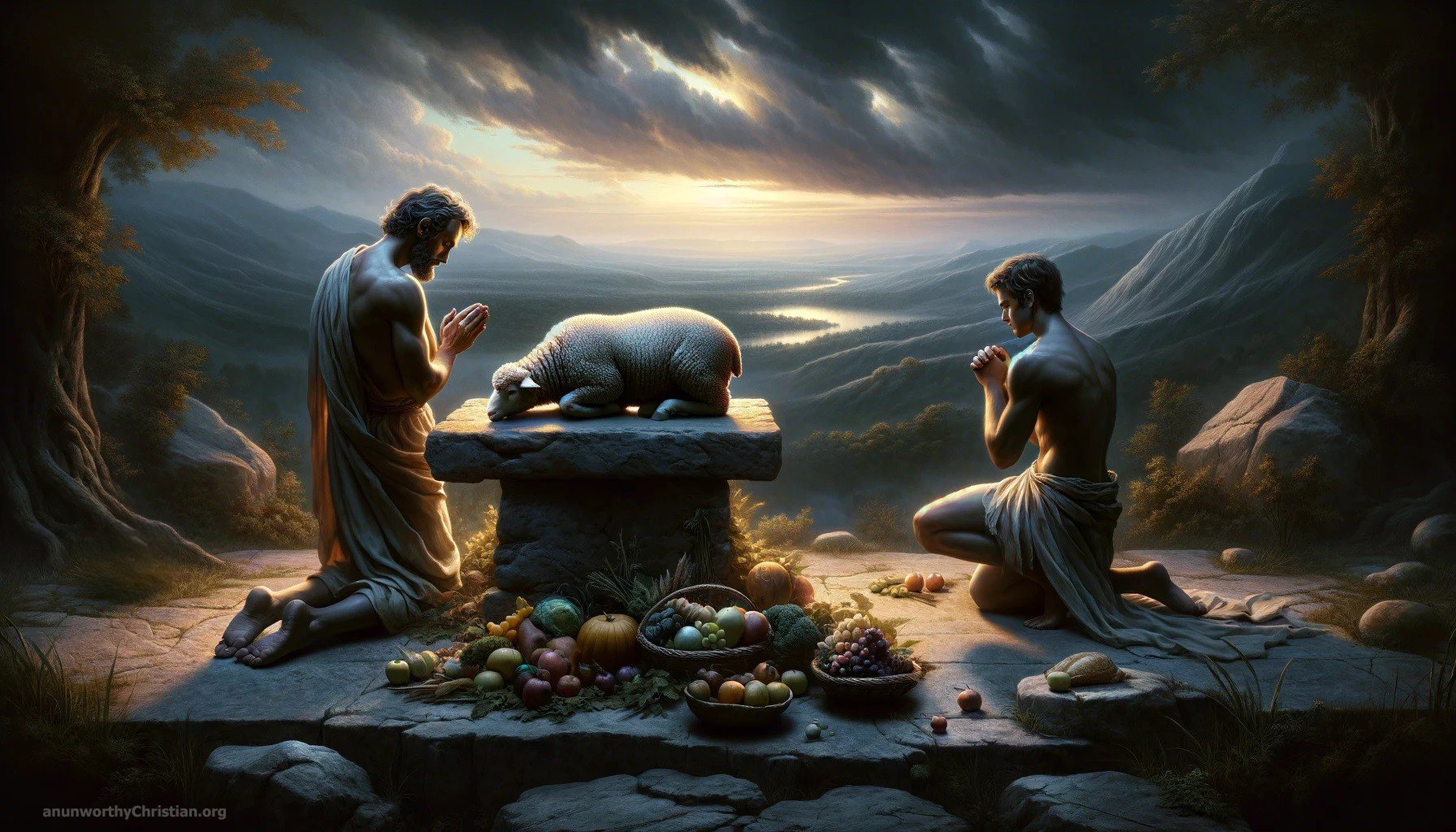The story of Cain and Abel, found in the Book of Genesis, Chapter 4, is one of the earliest narratives within the Bible that deals with the themes of sibling rivalry, sin, and divine justice.
Cain and Abel were the first two sons of Adam and Eve, the first humans created by God. Abel became a shepherd, tending to flocks, while Cain worked the soil as a farmer. In time, both brothers brought offerings to the Lord: Cain brought some of the fruits of the soil, and Abel brought the firstborn of his flock and their fat portions. The Lord looked with favor on Abel and his offering, but on Cain and his offering, He did not look with favor.
Cain was very angry and his countenance fell. God questioned Cain, warning him about sin lying at the door, and urged him to rule over it. However, Cain lured Abel into the field and killed him, committing the first murder recorded in the Bible.
When God inquired about Abel, Cain famously responded, "Am I my brother's keeper?" God then pronounced a curse on Cain, condemning him to be a restless wanderer on the earth. Cain expressed his concern that he would be killed for his deed, but God placed a mark on Cain to protect him from being killed by others.
Cain left the presence of the Lord and dwelt in the land of Nod, east of Eden. The narrative continues to trace Cain's descendants, indicating the spread of sin and violence in human society.
This story is rich in symbolic and moral complexities, touching on themes such as human free will, the nature of sin and its consequences, and the necessity of taking responsibility for one's own actions. It also introduces the concept of divine justice and mercy, as seen in God's punishment of Cain coupled with the protective mark to prevent further violence against him.

Cain and Abel make their Offerings to God
Artwork by An Unworthy Christian